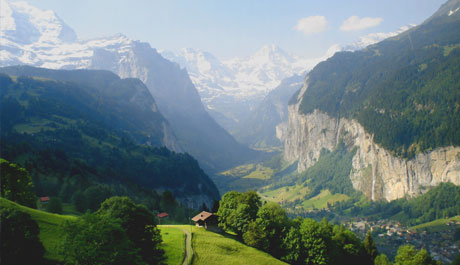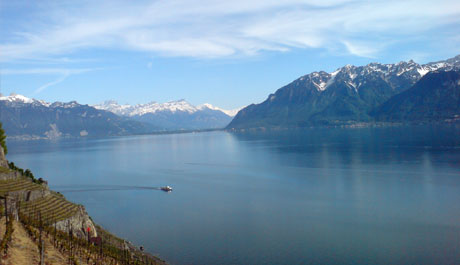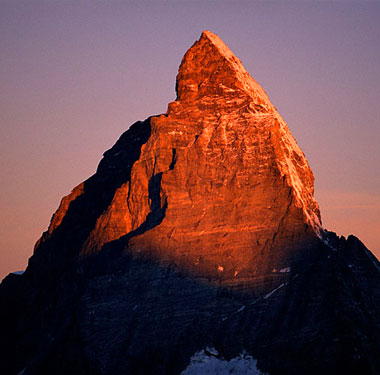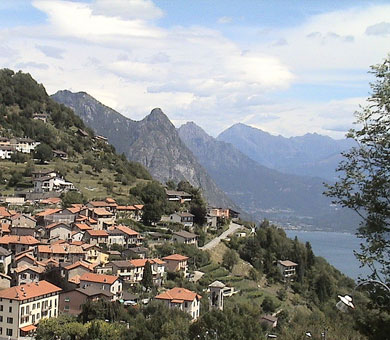Switzerland
Country statistics

Land area: 15,355 sq miles (39,769 sq km)
Total area: 15,942 sq miles (41,290 sq km)
Population (2012 est.): 7,665,628 (growth rate: 0.199%); birth rate: 9.51/1000; infant mortality rate: 4.03/1000; life expectancy: 81.17
Capital City: Bern
Monetary unit: Swiss franc
Languages: German 63.7%, French 20.4%, Italian 6.5%; Romansch 0.5% (all official); Serbo-Croation 1.5%, Portuguese 1.2%, Spanish 1.1%, English 1%, Other 2.8%
Ethnicity/race: German 65%, French 18%, Italian 10%, Romansch 1%, other 6%
Religions: Roman Catholic 41.8%, Protestant 35.3%, Orthodox 1.8%, Muslim 4.3%, none 11.1% (2000)
Country introduction

Switzerland is a landlocked country situated in Western Europe, where it is bordered by Germany to the north, France to the west, Italy to the south, and Austria and Liechtenstein to the east. While the Alps occupy the greater part of the territory, the Swiss population is mostly concentrated on the Plateau, where the largest cities are to be found. Among them are the two global cities and economic centres of Zurich and Geneva.
The country is geographically divided between the Alps, the Swiss Plateau or middleland and the Jura mountains on the north. The Alps are a high mountain range running across the central-south of the country, comprising about 60% of the country's total area. Among the high valleys of the Swiss Alps many glaciers are found, totalling an area of 1,063 sq km (660 sq miles). From these originate the headwaters of several major rivers, such as the Rhine, Inn, Ticino and Rhone, which flow in the four cardinal directions into the whole of Europe.
The more populous northern part of the country, comprising about 30% of the country's total area, is called the Middle Land. It has greater open and hilly landscapes, partly forested, partly open pastures, usually with grazing herds, or vegetables and fruit fields, but it is still hilly. There are large lakes found here and the biggest Swiss cities are in this area of the country. The largest lake is Lake Geneva (also called Lac Léman in French), in Western Switzerland. The Rhone River is both the main input and output of Lake Geneva.
The culture

For such a small country it has a rich history that has shaped its wonderful heritage. Switzerland is renowned for its cheeses, chocolate, watch making and Swiss army knives.
The Swiss are proud of the beauty of their country. There is a lot of untouched nature and in general people take great care to protect the environment. As a result, Switzerland is far advanced in recycling waste material.
Switzerland has also produced many, artists, scientists and authors. One of the most famous authors is Johanna Spyri, and the little girl "Heidi" is probably the most popular character of Swiss literature. In addition, famous Swiss authors of the 20th century include Max Frisch (Homo Faber), and Friedrich Dürrenmatt (The Pledge). Another extraordinary Swiss is undoubtedly Nobel Prize winning physicist Albert Einstein, who discovered the theory of relativity in 1905. The famous Nobel Prize winning linguist Ferdinand de Saussure was also Swiss.
Switzerland boasts a thriving arts scene, with its architects in particular achieving world-wide acclaim. Switzerland boasts a long tradition of architecture, where visitors will enjoy opulent Romanesque cathedrals (such as those in Geneva or Basel), as well as Gothic churches (in Zurich and Lausanne) or the Jesuit Church in Lucerne, which, dating from 1666, is the first example of the Baroque style in Switzerland.
The country also hosts an amazing concentration of galleries and museums displaying fascinating collections of history and traditions, natural and human sciences, ancient and modern art.
Attractions & landmarks

The country boasts an extraordinary abundance of natural beauties and interesting attractions.
Switzerland is known to be the land of the Alps and have been a major attraction for many visitors since tourism began there. North of the Alps a lowland area called the "Mittelland", hosts many beautiful lakes and most of the major cities before a smaller mountain range, the Jura, sets the division to the city of Basel and the river Rhein.
The Matterhorn, a mountain in the Pennine Alps in Zermatt is certainly the most famous of all mountain peaks and is a must for every visitor of Switzerland. Upon spotting the Matterhorn, which is part of the loftiest Alps in the Valais, visitors will be overwhelmed by its impressive beauty and breathtaking scenery.
The Bernese Oberland invites with a great variety of attractions. An appealing countryside is speckled by enchanting lakes and flanked by impressive mountains, most importantly the Jungfraujoch, near Interlaken. Other Alpine and mountain resorts in the area include Gstaad, Grindelwald, Wengen and Muerren.
The fame of Lucerne as a tourist resort is legendary and it is often considered to be the true "Swiss" capital. This charming and attractive town straddles the Reuss River on the western edge of Lake Lucerne and makes an excellent base for excursions with its proximity to lakes and mountains as well as a base for venturing south towards the Alps and the Ticino. A good way to see Lucerne and Central Switzerland is from the Pilatus, a towering mountain composing of several summits of which the highest 2,128 m (6,981 ft) is named Tomlishorn.

Switzerland's southern-most canton, Italian-speaking Ticino, can seem a world apart from the rest of the country, especially the lakeside resorts of Lugano and Locarno, with their Mediterranean Riviera like atmosphere. The romance that surrounds the southern part of Switzerland is well worth the visit.
The isolated mountain valleys of Graubunden, in the eastern corner of the country, provide the setting for winter resorts like St. Moritz and Davos. For the traveler this is the part of Switzerland where the most spectacular mountain landscapes can be enjoyed. The Engadin allows visitors to experience lovely panoramas of great, deep valleys, fiercely blue mountain lakes and endless rows of white mountains, all blessed by the sun.
Zurich, the most populous city of Switzerland, is famous for its financial institutions and shops on "Bahnhofstrasse" as well as for its superb art galleries, all coexisting happily side by side. Lake Zurich offers endless opportunities for swimming, sunbathing and picnicking.
In the west, the cities lining the northern shore of Lake Geneva (Geneva, Montreux and Lausanne) are surrounded by rolling hills covered with woods and vineyards which shelter them from the north and east winds. This area makes up the bulk of French-speaking Switzerland. Geneva is unquestionably one of Switzerland's most privileged cities on account of its exceptional location. Visitors will be delighted by opulent mansions, the harbor and its fountain, and the shimmering shores of the lake, set against a backdrop of lush vegetation and wooded mountains.